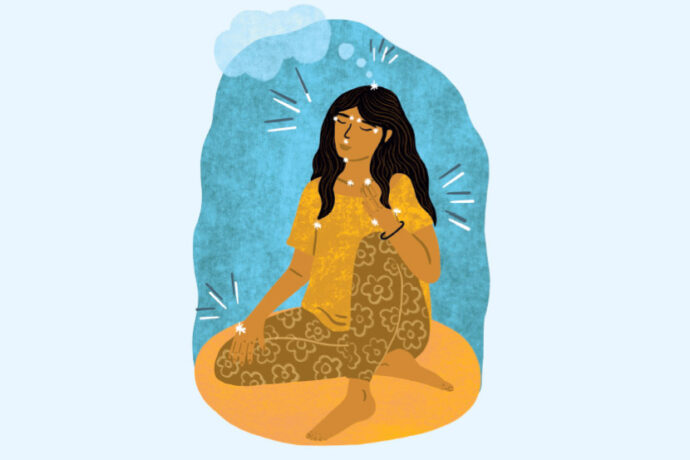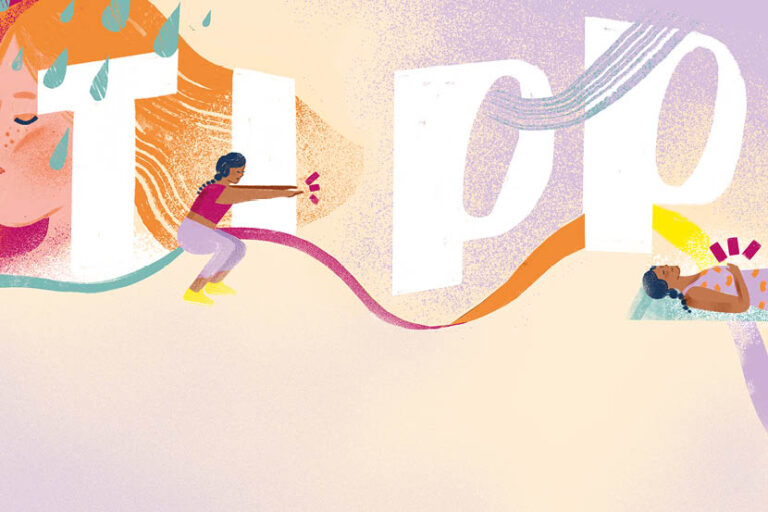
Experiencing life deeply is a gift to be cherished and celebrated. Uncover why high sensitivity is a strength and how it can enrich lives, relationships, and the wider world.
Do you think and feel things deeply or notice subtle details that others miss? Can you easily pick up on what other people are feeling? Perhaps you’ve always found your inner life rich and interesting? If you answer “yes” to most or all of the above, then you could be a highly sensitive person (HSP).
The term was coined by American clinical research psychologist Elaine Aron to describe the 20–30 percent of the population who, as referenced in her book, The Highly Sensitive Person, process thoughts, feelings, and sensory input more deeply than others. Generally speaking, society often downplays or even disparages signs of sensitivity, using labels such as “delicate” and “easily hurt or upset”. But what about qualities such as insightful, empathetic, and diligent? These, and more, go hand in hand with sensitivity.
Understanding what it means to be highly sensitive
Highly sensitive people tend to notice things in their environment that others may miss and will carefully consider the pros and cons before making decisions or taking action. As a result, they’re usually intuitive, creative, empathetic, cautious, and conscientious.
They also consistently take in large amounts of information, including sensory factors such as sounds, touch, and movement, which can sometimes lead to overload.
However, there’s a broad range of characteristics and not all HSPs are alike. Some experience certain sensitivities over others and to different degrees.
It’s also worth highlighting that being highly sensitive isn’t a disorder, nor is it synonymous with being an introvert. Many HSPs – around 30 percent, according to Aron – identify as extroverts.
Sensitivity in society & work
Perceptions of sensitivity can vary in different cultures and communities. Many professions and life situations require a compassionate human being to be there – medical staff , teachers, therapists, spiritual leaders, and those working in end-of-life care are all examples of roles where being highly sensitive is an advantage.
Hannah Jane Walker, a HSP and author of Sensitive: The Power of Feeling in a World that Doesn’t, agrees and believes that society at large could learn a lot from people with this personality trait: ‘Certain jobs have empathy and care at their core, where considered human interaction is essential. But there isn’t always any language for that. Job descriptions talk about “output” and “productivity”, but if society were to start using language to describe the importance of sensitivity, we [could] start to change what we value as a culture.’
Being more attuned to your work situations, family, and friends can be an incredibly helpful skill to have, and it’s possible for non-HSPs to strengthen theirs because there’s a sliding scale of experiences. Non-HSPs might still be sensitive about certain things but in different ways from HSPs, depending on their own background and history.
Imagining a highly sensitive world
Just for a moment, imagine what the world would be like if we flipped the statistic and 70–80 percent of the population were HSP and 20–30 percent were non-HSP.
Perhaps education would be radically different and there’d be more of a child-centred approach. There might
be more value and understanding of minority groups, less language around success. What would the political landscape be like? Would it be an effective system?
Hannah says: ‘We very much need non-HSPs, too. This thinking type might act with less consideration than the level of care HSPs employ. That can be useful to our species, such as when we need to make big decisions, when moving forward is necessary and focusing on getting a tough job done; that’s sometimes what we need. But actually, what we really want are both types, HSPs and non-HSPs, to work together in partnership the best they can, to bring out the best in one another. The non-HSPs – often the front-running strategists – and the HSPs – often the wise, sage role – to develop mutual benefit.
There’s value in both, so that’s the challenge – to create a balanced ecosystem of both thinking types in society.’

Treating sensitivity as a life skill
So how can society collectively change in a world that doesn’t often champion sensitivity? Hannah believes we can learn and use sensitivity as a skill – it’s something to which we all have access. It can be harnessed, learned, and exercised, just as ruthless competition has been exercised for some time. She says: ‘People can use sensitivity like a muscle, just like an athlete practises on the track. We can all learn to be good at noticing a situation, the nuance of what is going on in a room, lighting wise, touch wise, sound wise, interactions between people… Awareness is an incredibly helpful skill and HSPs are especially good at viewing things like a drone and seeing what is going on, broadly and on a micro level, too, mapping together a recurring pattern.’
Why the world needs HSPs
It’s clear that, as a society, we need HSPs. They contribute greatly to social cohesion, human care, and insight.
Hannah concludes: ‘It’s also interesting to consider what skills we need to draw on and foster as a society in order to move forward positively and constructively.’
Sensitivity is a skill that’s available to all thinking types. It’s hugely benefi cial to everyone to have that balance and diversity. Perhaps what we need is more HSPs in areas such as politics and for society to recognise that, far from being an undesirable personality trait, being sensitive is a sign of strength.


















